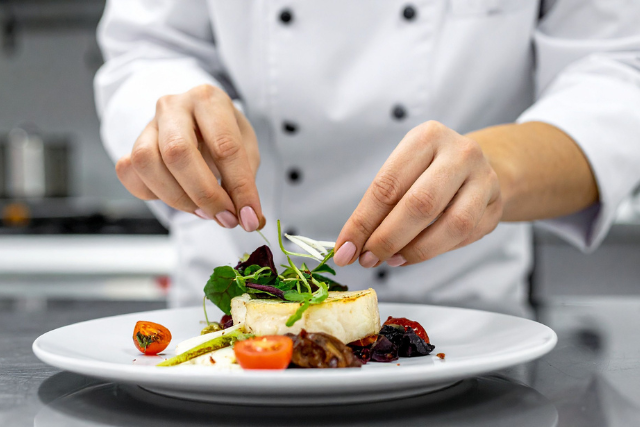
The food industry continues to grow, shaped by cultural exchange, evolving consumer tastes, and new business models. Culinary entrepreneurs drive this change by creating dining experiences, leading teams, and building food enterprises. Formal education provides a strong starting point for anyone who wants to take this path. Institutions such as CCA Manila design programs that connect technical training with business preparation, helping students succeed in the kitchen and the marketplace.
In this article, we’ll explore why a culinary arts degree matters for future entrepreneurs.
Developing a Strong Culinary Base
The first step toward entrepreneurship in the food industry is mastering the craft. A Bachelor in Culinary Arts degree program provides a deeper understanding of ingredients, cooking methods, and the science behind flavor. Students practice essential skills such as knife handling, station setup, and food safety, which are the backbone of every successful kitchen.
With consistent training, they gain confidence and precision. This allows them to lead teams effectively and maintain quality even in high-pressure scenarios. Strong technical knowledge also gives entrepreneurs the freedom to innovate, since they can experiment without losing consistency. Formal education ensures these skills become second nature.
Expanding Knowledge Through Culinary Arts Courses
Culinary programs extend beyond basic kitchen training. Students take nutrition, menu design, food costing, and service management classes. These courses encourage them to think about cuisine from different perspectives and recognize the many factors influencing a successful food business.
For example, menu planning becomes creative and strategic. It requires knowledge of customer preferences, seasonal ingredients, and supply chains. Food safety lessons prepare students to meet health standards, which is critical for any business. Exposure to these subjects provides a realistic view of the industry and prepares graduates to manage daily operations and long-term goals.
Strengthening Business and Management Skills
Culinary entrepreneurs must balance artistry with practicality. Degree programs address this by including subjects in financial planning, marketing, and leadership.
Managing costs, setting budgets, and organizing workflows are essential for stability. Without this knowledge, even the most talented chefs risk losing control of their operations. Leadership classes help future entrepreneurs build strong teams, resolve conflicts, and maintain productive work environments. The combination of creativity and management creates a foundation for long-term growth.
Building Connections in a Culinary School Community
Formal education also provides access to a supportive community. A culinary school brings together instructors, classmates, and industry professionals who share ideas, guidance, and opportunities. These relationships often lead to mentorships, collaborations, and partnerships that extend well beyond graduation.
Diversity within the classroom broadens perspectives. Students learn from peers who bring different cultural backgrounds and culinary traditions. Exposure to this variety encourages flexibility and creativity, two essential qualities for anyone who plans to build a career in a globalized market.
Encouraging Innovation Through Structured Experimentation

Entrepreneurs need to create offerings that stand out. A degree program provides a structured environment where students can experiment with flavors, techniques, and presentation styles. Professional kitchens and modern tools allow them to try new concepts while receiving constructive instructor feedback.
This process helps transform ideas into practical applications. Students learn how to refine dishes, evaluate results, and adapt concepts to meet customer expectations. Experimentation within an academic setting builds creativity and discipline, preparing graduates to introduce original ideas in their businesses.
Gaining Cultural and Global Perspectives
Culinary education highlights the role of culture in shaping food. Students are introduced to international cuisines, food history, and regional dining practices. This exposure develops awareness of how traditions influence modern cooking.
Understanding these cultural elements helps entrepreneurs design menus that appeal to diverse customers. It also allows them to create authentic experiences that respect traditions while introducing innovation. In a competitive market, cultural awareness provides an advantage, ensuring businesses can adapt to varied audiences while maintaining originality.
Connecting Culinary Training With Entrepreneurship
Some programs are designed to combine cooking expertise with entrepreneurial education directly. The Bachelor of Science in Entrepreneurial Management Major in Culinary Arts is one example of this integration. It blends management courses with culinary training, giving students practical kitchen knowledge and strategic business preparation.
Graduates of this program are prepared to analyze markets, manage costs, and write business plans while designing menus and leading kitchens. This balance addresses a common challenge for new entrepreneurs: translating creative ideas into financially stable and sustainable businesses. With this training, students leave with the ability to approach food ventures from multiple perspectives, allowing them to adapt and compete effectively in the food industry.
Entrepreneurial Management Frameworks
Students are introduced to tools and frameworks that help them plan, launch, and sustain food businesses. They learn to analyze the market, study competition, and design strategies that fit customer needs and financial goals. This knowledge gives them a structured approach to entrepreneurship, reducing guesswork and improving decision-making.
Entrepreneurial Mindset Development
Business success often depends on mindset. The program nurtures creativity, resilience, and adaptability, encouraging students to see opportunities where others see challenges. They are trained to take calculated risks, evaluate ideas critically, and create strategies that allow them to move from concept to execution. This mindset is especially valuable in a fast-changing industry where innovation drives growth.
Sustainability and Profitability
A profitable venture is important, but long-term survival requires sustainability. The program guides students in designing business models that balance income with efficiency and responsible resource use. They study cost control, pricing strategies, and operational planning, all of which help ensure a venture remains resilient even when market conditions shift.
Integration of Culinary and Business Skills
Many entrepreneurs excel in either the kitchen or the business office, but few are equally confident in both. This program bridges that gap by teaching students to run kitchens while also managing financial and administrative responsibilities. For example, they might design a creative menu and then calculate its cost efficiency and profitability. This dual skill set prepares graduates to make decisions that balance quality and finances.
Personal Growth and Character Formation
Beyond technical and business knowledge, the program emphasizes leadership, responsibility, and discipline. Students are trained to lead teams, make ethical choices, and represent their businesses professionally. These personal qualities support long-term credibility and trust, needed in an industry built on reputation.
Launch Your Culinary Entrepreneurial Journey
Some students join to prepare for a leadership role, while others focus on refining skills for their business, and many pursue both paths. The right environment equips students with the knowledge, confidence, and professional networks to launch and sustain successful culinary enterprises. By learning from experienced instructors and collaborating with peers, graduates gain insights beyond cooking, preparing them to innovate, lead, and thrive in the competitive food industry.
Apply now at CCA Manila to gain practical experience, professional insight, and the skills needed to run and grow a successful culinary enterprise.
